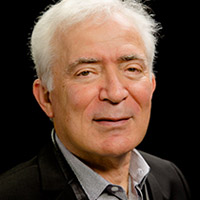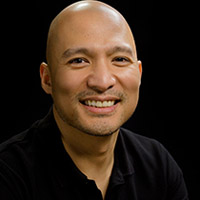Tell Me Your Value Equation

Every company feels like it has what it takes to make a difference in its customer’s lives. No matter what product or service they offer their clients, all companies feel like they can do it better than anyone else. So what makes one company stick out from another? Is it how much money that company makes for its own bottom line or is how much it helps its customers? When it comes to investing and getting behind a startup company or an entrepreneur, the real question is what is your value equation? That’s according to silicon valley’s legendary entrepreneur Rob Ryan.
What Sets Entrepreneurs Apart?
Rob and I spoke about his experience with helping entrepreneurs, which is his main focus now since retiring from running his company. In 1999, Rob sold Ascend Communications, which helped create and build the entire infrastructure of the Internet, to Lucent Technologies for about $24 billion. To this day, this deal still holds the record as the the biggest merger between technology companies. Rob is now the Chairman and co-founder of Hero Club, which is an organization dedicated to training and developing entrepreneurs. However, Rob told me that one of the main things he looks for when trying to determine the true value of a company is not how much the company itself is worth, but how much value the company brings to its customers.
What Is the Value Equation?
This is what Rob calls the value equation and he says a lot of companies can’t really accurately answer this question. Many companies speak about what they do well and how their product or service is different, but they aren’t really explaining what their value is. For Rob, he’s looking at how much you can really help your customer, not yourself. Rob shared an example with me regarding the question, how much money can you make or save your customer? He said if a company were to answer him that its product or service could help save it’s customer $800,000 a year because it’s capable of the doing the following things…then he knows he has a good one. He said that is a company he is going to explore deeper.
Do You Know Your Value Equation?
Rob said that he has a lot less interest in the companies that can’t really answer that question or that haven’t take the time to determine what their true value equation is. In fact, the answer to that question is so important to Rob that he told me that “the people that have actually taken the time to explore and work with their customers and know where the customer’s pain is and how much that pain is costing them, that would be the one question I would ask if I only had one question to ask.” Therefore, as far as Rob is concerned, if you want to set yourself apart as an entrepreneur or a startup company then you need to know your value equation. That means you need to know what the real value is that you bring to your customers and how to explain what that value is.
Building a Jewelry Company | Stephen Silver
About Stephen Silver Stephen Silver Fine Jewelry is considered one of the United States’ premier jewelry houses. Founder, Stephen Silver, is a gemologist, artist, and philanthropist. Toronto born, Stephen moved to the San Francisco Bay Area as a teenager. Intrigued by science and minerals from a young age, Silver studied geology at San Diego…
Rising from Rubble to Build an Empire | Jerry Brenholtz
About Jerry Brenholtz Jerry Brenholz co-founded ATR International, Inc. in 1988. He has been instrumental in developing ATR into an important provider of contract staffing for Information Technology. In his current role, he is responsible for establishing a corporate-wide vision and defining strategic direction. Prior to ATR, Jerry held various technical positions with General…
Serial Entrepreneur | Aldo Carrascoso
About Aldo Carrascoso Aldo Carrascosois the Founder and COO / CTO of Veem, a company that utilizes Blockchain to allow individuals to make cross border payments in local currencies. The company was conceptualized by Aldo when learned that individuals making cross border payments were having to pay up to 25% of the transfer amount…
Turning Tragedy into Positive Experiences | Gerald Carroll
About Gerald Carroll Gerald Carroll is a partner with Burnham Brown law firm in their Oakland office. He specializes in Construction and Professional Liability Law. Prior to coming to Burnham Brown, Jerry along with his partner ran their own law practice, Hartman and Carroll for 20 years. Jerry graduated with honors in English from…




